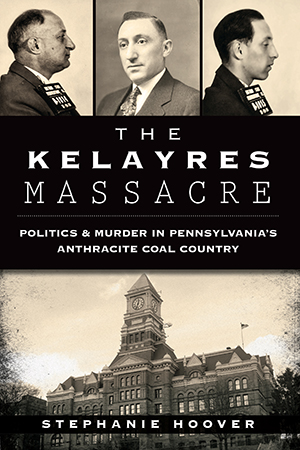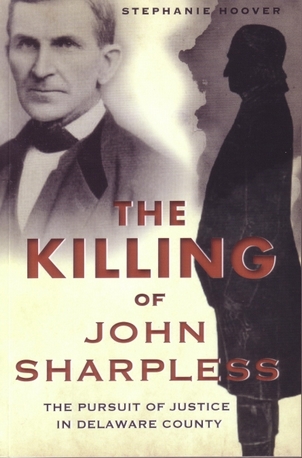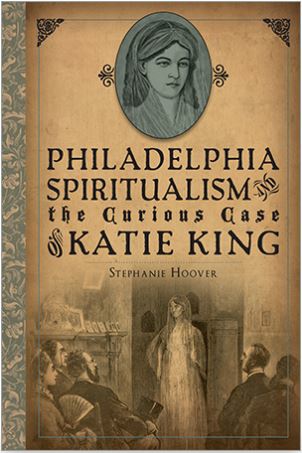The Antimasonic Party in Pennsylvania
© Stephanie Hoover - All Rights Reserved
In 1826 a New Yorker named William Morgan announced that he was writing a book which would detail the secrets of Freemasonry. Though other such stories had been published in England, Freemasonry's homeland, news of Morgan's book was met with anger and violence in New York. In September of 1826 Morgan was arrested for non-payment of a petty debt. A Mason posted Morgan's bail and Morgan left the jail, never to be seen again. While the body of Morgan was never found, the general public believed that Morgan had been killed to silence his revelations about the Mason's secret society. In 1827, New Yorkers refused to vote for candidates who were Masons and the Antimasonic Party was born.
As if being suspected of William Morgan's murder wasn't enough, rumors of other killings by Masons ran rampant. Among the many victims was, according to Henry Gassett's 1829 work Catalogue of Books on the Masonic Institution, a Philadelphia-area man named William Michener. According to Gassett, Michener was found in the woods, disemboweled, his heart in his hand and a knife by his side. The motive for his murder: he had revealed the secrets of masonry.
Stories like these incited Antimasonic sentiment. Pennsylvania Germans took offense at the oath-taking required in Freemasonry. Scots-Irish resented the aristocratic nature of the Mason hierarchy. They also sensed that members of the Grand Lodge in Philadelphia looked down upon their "backwoodsmen" ways. Mennonites, Amish, Dunkards and Quakers opposed the Masons' regalia and elaborate ceremonies in addition to holding their secrecy and oath-taking in contempt.
An organized Antimasonic Party first appeared in Pennsylvania in 1828. It arrived with the publication of the Antimasonic Herald in Lancaster. The party's first gubernatorial candidate was a German immigrant's son named Joseph Ritner. A man of limited education and minimal political skill, Ritner ran for governor four times. He was successful only once.
Democrats dismissed the Antimasonic Party as being a puppet of Henry Clay and his National Republican Party. They also accused the leadership of operating out of opportunism rather than true political ideology. Unfortunately for the Democratic Party, however, its own constituency was split due in great part to Governor George Wolf's successful - yet controversial - fight to implement state-wide, tax-supported public education. Taking advantage of this rift, Joseph Ritner was elected governor in 1835. Though this made Ritner the theoretical leader of the Antimasonic Party, the true evangelical force of the movement was Thaddeus Stevens.
Stevens was born in Danville, Vermont in 1792. His antimasonic zeal was likely in large part due to his birthplace. Vermont was the scene of the strongest, longest-lasting antimasonic movement in America.
In 1833, Stevens entered the Pennsylvania House of Representatives from Adams County. Upon Ritner's election, Stevens was chosen to chair a committee to investigate Freemasonry. In McCarthy-esque manner, Stevens attempted to subpoena over 100 witnesses. Only four actually appeared before the committee. The public quickly tired of what seemed to be a senseless witch hunt. This distaste, combined with the increased public debt and budget deficit, moved many away from the Antimasonic Party and back toward the Democrats, healing the division that had helped elect Ritner. Consequently, the Democrats won the governorship and the house decisively in 1838. The senate, however, remained in the control of the newly formed Antimasonic-Whig coalition. Making matters more complicated, Ritner and Stevens refused to concede defeat.
Little question remains that fraud was committed by both parties in 1838. Ritner perpetuated the dishonesty by sending out a statement telling his party members to proceed as if the election never happened. Antimasonic judges wrongly certified the election in favor of their own party but Democrats stood firm in their victory. When the legislature reconvened the air was so thick with hostility - and the Capital so crowded with partisans from both sides - that Stevens and Senate Speaker Charles B. Penrose leapt out a low window. They ran to the governor's mansion. Upon hearing of the dissent, Ritner ordered militia to march to Harrisburg. The week-long military presence became known as the "Buckshot War," so-named after the ammunition provided to the soldiers. When three Whigs admitted that the Democrats were entitled to their seats, the Buckshot War ended - as did Ritner's chance for re-election and any hope of keeping the Antimasonic Party alive.
Though existing only briefly, the Antimasonic Party had lasting impact on national politics. The national presidential nominating convention was the creation of the antimasons. It was the first "morality party" in that it believed the fight against Freemasonry was a fight for Christian, religious values. Additionally, it was the first party to effectively develop "party organs" - newspapers created specifically to further its cause. And although the majority of Pennsylvania's antimasons melted into the Whig party, politicians learned a valuable lesson still heeded today: if enthusiastic enough about a cause, non-voters can be enticed into actively supporting any political party, even one as narrowly formulated as the Antimasonic Party. ~SH


